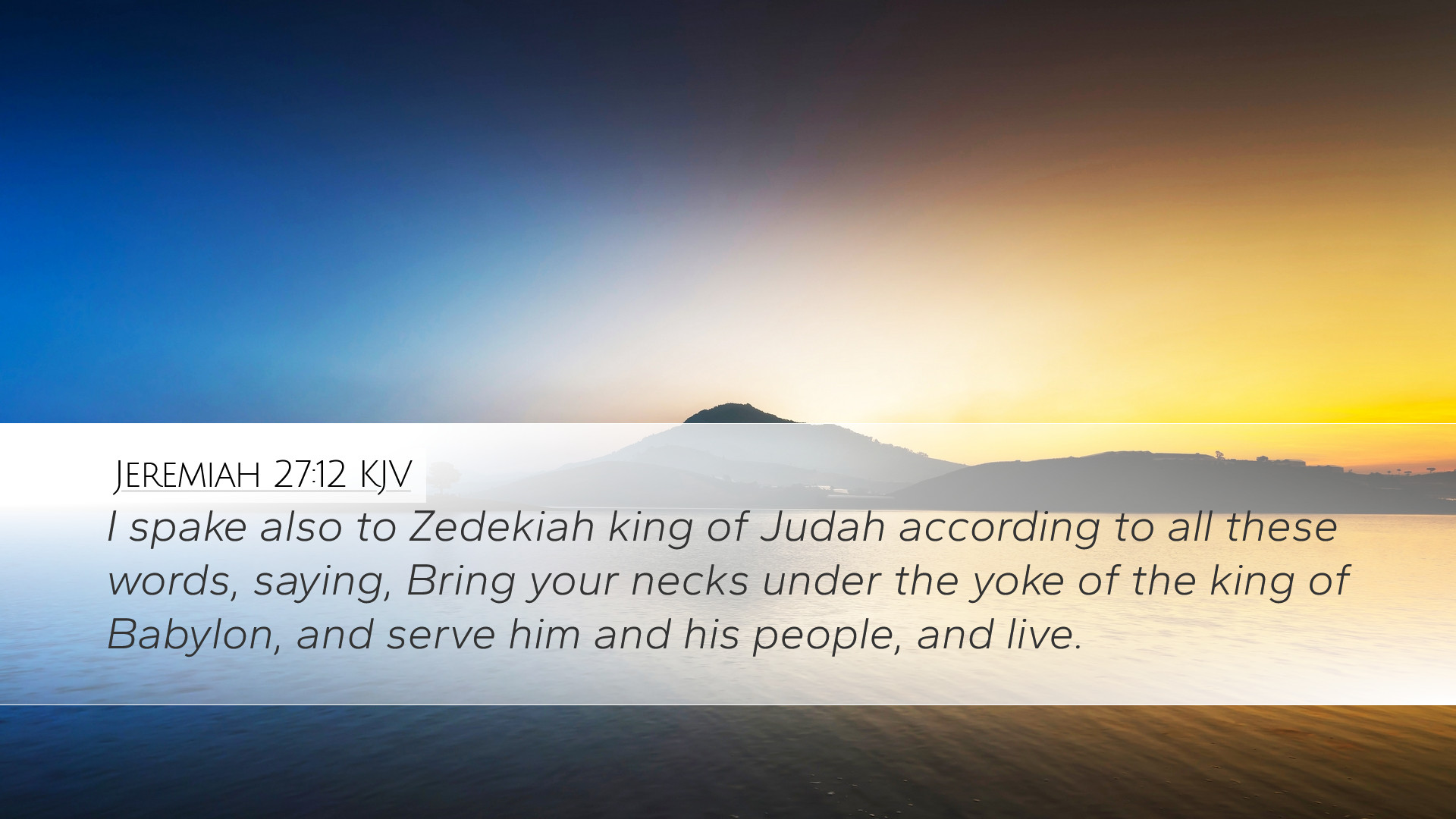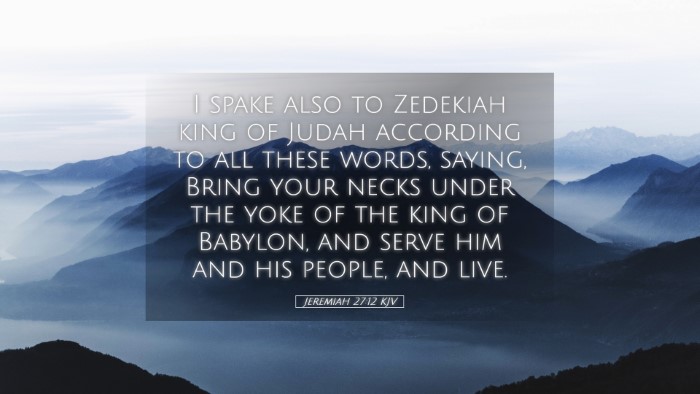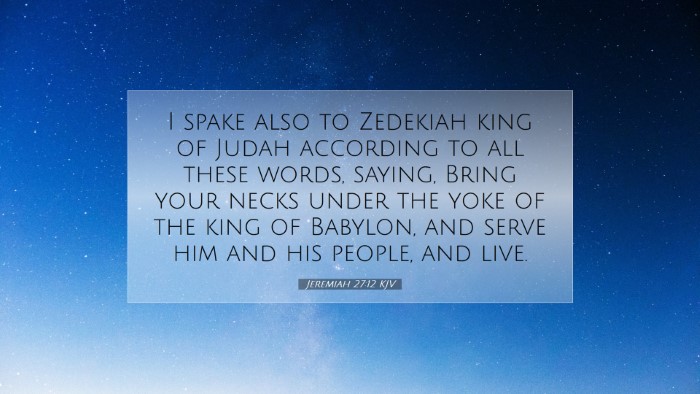Commentary on Jeremiah 27:12
Verse Context: Jeremiah 27:12 states, "I also spoke to Zedekiah king of Judah according to all these words, saying, 'Bring your necks under the yoke of the king of Babylon, and serve him and his people, and live!'" This verse highlights God's directive to Judah’s king during a tumultuous period of impending exile and national upheaval.
Introduction
This verse encapsulates a significant prophetic message delivered by Jeremiah during a crucial historical moment. The call to submit to Babylon serves as a divine strategy to mitigate the suffering of God's people amid divine judgment. This commentary synthesizes insights from renowned public domain commentaries to provide a comprehensive understanding of this text.
Theological Significance
Divine Sovereignty
Jeremiah's call to surrender reflects the overarching theme of God's sovereignty in the affairs of nations. According to Albert Barnes, this verse emphasizes that God’s plans extend beyond mere political structures; they encompass the moral and spiritual condition of His people. The instruction to submit to Babylon can be viewed as God's way of guiding His people through their rebellion towards eventual restoration.
The Concept of the Yoke
In biblical terms, a yoke symbolizes servitude and submission. Adam Clarke elucidates that to "bring your necks under the yoke" signifies an acknowledgment of Babylonian dominance, which is both a physical and a spiritual act. This submission is not presented as an end in itself but rather as a means to preservation. Clarke emphasizes that the yoke symbolizes both servitude and eventual divine protection for those who align with God's will.
Historical Context
The historical backdrop of Jeremiah 27:12 is crucial for understanding its message. Judah was facing imminent invasion and exile (586 B.C.); thus, the prophetic word was designed to prepare them for the inevitable. Matthew Henry points out that this was not merely a political instruction but a divine message aimed at urging the people back to repentance. The people of Judah were engaged in alliances that God deemed as detrimental, which led Jeremiah to call for submission to Babylon as a means of survival.
- Political Realities: At this time, the geopolitical landscape was complex, with Egypt and Babylon vying for dominance. Zedekiah’s inclination towards rebellion was not unique but common among various factions within Judah, as they hoped for military deliverance from outside influences.
- Prophetic Urgency: The urgent nature of Jeremiah’s message is evident. This call does not merely relay information; it is a prophetic imperative, underscoring the importance of submitting to God's will even when it contradicts human wisdom.
Practical Applications
For pastors and theologians, the application of this text revolves around the themes of obedience, submission, and the recognition of divine authority within societal structures.
- Obedience to Divine Authority: Jeremiah's directive to king Zedekiah illustrates a broader principle of acknowledging God's authority in our lives. In contemporary settings, leaders and individuals alike are challenged to discern God's voice in decision-making processes.
- Embracing the Yoke: Modern believers must confront their own resistance to divine guidance. Clarke’s insight encourages a reflective posture; rather than viewing yokes as burdens, they should be seen as opportunities for spiritual growth and alignment with God's plan.
- Endurance in Trials: The message also serves as a reminder that enduring difficult circumstances can position believers for eventual restoration—both personally and corporately. This theme resonates in pastoral counseling where encouragement amidst trials is often necessary.
Conclusion
Jeremiah 27:12 challenges both its original audience and contemporary readers to submit to God's will, despite circumstances. The synthesis of insights from Matthew Henry, Albert Barnes, and Adam Clarke reveals the depth of divine wisdom embedded in this single verse. As students of the Word, we are encouraged to recognize the authority of God in our lives, to embrace humility in submission, and to trust in His overarching plan for restoration and renewal. God’s directives, though sometimes difficult, always lead to His ultimate purpose for His creation.


